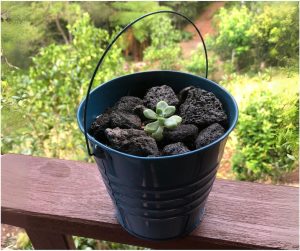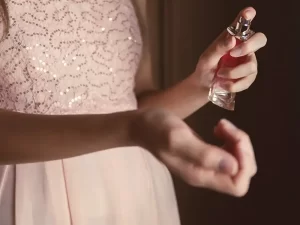If you’ve ever wondered how does stress affect your hormones, you’re not alone.
Google that question and there are 112 million results! If you’re a mum, then you know all about stress. And in the back of your mind you’re probably worried about how that stress is affecting you – your health and wellness.
If that’s you, then I understand exactly where you’re coming from. There was a time in my life where I was tired all the time. But I just put it down to ‘being a mum’. It wasn’t until I couldn’t shake a cough that I went to the doctor. She said that I probably couldn’t shake the cough because I was run down. That wasn’t surprising, because I was clearly stressed and burning the candle at both ends. I was working a 9-5 job, being a mum to two girls, running a business and coping with Life. Know what I mean?
Keeping ahead of the stress
The technical name for what was going on in my body was adrenal fatigue. Your adrenals are tiny little glands that sit on top of your kidneys. They make adrenaline – which is a good thing. We need adrenaline to prepare our body for ‘fight or flight’ – those times when we have to respond instantly to a threat. It’s part of our body’s survival mechanism. But, in my case they had been working overtime to keep up with my very stressful life. It’s like I was in fight or flight mode – all the time.
Stress is brought on by what we call Stressors. This stressor is usually a ‘Threat’ whether real or perceived. These days it’s rare for us to be threatened by a wild animal. When was the last time you were attacked by a bear in the supermarket?
Today the threats we face aren’t quite so immediate, but our minds and bodies still recognise them as life-threatening. For example, the fear of losing our job, the fear of not being able to make a mortgage payment, fear of illness or even dying, fear of getting caught, fear of failure, fear of surgery or even pain.
But what is FEAR?
I like to think fear stands for ‘False Expectations Appearing Real’. The truth is, often our fears make things seem a lot worse than they really are. Have you ever been awake for hours in the middle of the night thinking of everything imaginable going wrong, yet when morning comes things don’t seem anywhere as bad? It’s a vicious cycle – stress causes worry and worry leads to more stress. This causes the body to use a lot of energy – and produce a lot of adrenaline – for something that may never eventuate.
No wonder we sometimes wake up more tired than when we go to bed. We’ve been trying to run away from bears all night!
How full is your ‘stress glass’?
Imagine that your stress was held in your ‘stress glass’. For many people their stress glass is nowhere near full, so when a stressor comes along – some kind of stressful event in their lives – their stress glass becomes more full, but they’re able to cope. There’s still room in the glass.
However, if you’re constantly under stress and your glass is already ¾ full then one more stressful event can tip you over the edge. Just 10 minutes of watching TV news can make your stress levels soar and for some people this one thing may be all that is needed to overflow their stress glass.
What type of stress do you have?
Not all stress is bad. True! There are two types of stress. Eustress is positive stress such as a stimulating, exhilarating event like a promotion or an exciting trip. Eustress helps keep us motivated and challenged. The second type is distress. This is the negative emotional upheaval and physical disturbance which most of us identify with when we think of stress.
Medical researchers believe that between 75% and as much as 90% of visits to the doctor are related to stress. However, stress is not a diagnosis, it’s a concept. Saying someone is ‘under stress’ is like saying they have a temperature. These are both things that are going on all the time in the body. It is how the body reacts to stress that can lead to illnesses and disease.
How does the body react when faced with a stressor?
So, you’re faced with a Stressor – a Real or Perceived Threat. As I mentioned earlier, your body has either a Fight or Flight reaction– this reaction dates back to our cavemen ancestors who when faced by a bear in the woods had few choices. They could freeze and be eaten by the bear. But who wants to be a Happy Meal for a bear? So they could either run away – flight – or they could fight the bear.
When you face a threat your Hypothalamus sends out alarm signals to the various systems in your body. Your Heart rate increases, blood pressure increases and blood sugar increases. Your Limbic system reacts affecting your mood, motivation and fear. Digestion, immune, reproductive and growth processes are all suppressed, as you don’t need these systems to fight or run away from the bear.
Your Adrenal glands are stimulated and release stress hormones including adrenaline, cortisol and serotonin. To produce these hormones the body takes vitamins and minerals from the body’s tissues. These hormones are acidic causing the body to become more acidic, which as many of us know in the long run can lead to disease.
And that’s where the problem comes – for too many of us this threat alarm system never shuts off and this leads to chronic stress.

How does stress affect your hormones in the long-term?
Long-term stress puts your body in a constant state of sympathetic overdrive – this is what is referred to as running on adrenaline. For your body to make the hormones adrenaline, cortisol and serotonin it needs vitamins and minerals and after a while the body becomes deficient of vitamins and minerals because they are all being used to make these hormones.
The hormones don’t get burnt up by actual, physical exercise – as they would normally in nature – because we aren’t actually fighting or running from a bear. Our body just thinks there’s a bear. So your body is left with an excess of acidic hormones. This is why people who have a healthy diet can still become acidic. And an acidic body leads to disease.
Remember, under stress the sympathetic nervous system shuts down other normal functions like digestion, libido and immune system. The production of other hormones in the body is also compromised. This includes producing reproductive hormones like progesterone and oestrogen, as it’s making cortisol and adrenaline instead.
At first the body is in a state of alarm from the stressor, but if the stressor continues then the body begins to adapt to the new levels of hormones, the inability of bodily functions to work effectively etc. Eventually the body reaches a state of exhaustion and this manifests within the body in various ways.
When the body is experiencing chronic stress and is in a state of exhaustion it can develop a weakened immune system, leaving itself open to all sorts of illnesses and diseases, including colds and flu.
It may manifest as headaches, muscular pain, diarrhoea, urinating more frequently, difficulty concentrating, insomnia, panic attacks, constant crying, frustration, depression, stomach ulcers, thyroid disorders, feeling bored, weight gain, hyperactivity, irritability, diabetes, hypertension, skin breakouts, nausea, dizziness, chest pain, loss of sex drive, apathy, physically detached, burnout and increasing the use of drugs and alcohol.
So how can Essential Oils be used to help with stress?
Essential Oils are adaptogens – Because they come from plants they are never the same from year to year. They change because of their environment ie drought, altitude etc. Essential oils are the blood of a plant and they adapt to meet the needs of the plant at a particular time. Therefore we have oils which have both stimulating and calming properties. They do what the body needs at that particular time. This is particularly useful when the body is under stress.
8 Best Essential Oils to reduce stress
We can diffuse, inhale or topically apply the following essential oils:
- Lavender – is calming, and balancing both physically and emotionally. Place lavender essential oil on a pillow before going to bed or doing any relaxation or before meditation.
- Roman Chamomile – I find it very calming. It is relaxing and may assist us to sleep. I use it to overcome restlessness, feeling anxious, anger and for stabilising my emotions.
- Cedarwood – Calming and can help bring emotional stability.
- Valerian – It’s earthy fragrance is calming and grounding. I use it on the bottoms of my feet before sleep as I don’t really like the smell.
- Sandalwood – Useful for releasing negative emotional programming. Bringing about balance and stablising the mind.
- Frankincense – is balancing. It is high in sesquiterpenes which are stimulating. I use it for overcoming feelings of anxiousness.
- Ylang Ylang – Has long been used as a spiritual oil – to reach internal spiritual unity, filter out negative energy and focus on peace and confidence.
- Stress Away™ – contains the unique combination of pure Lime and Vanilla therapeutic grade essential oils. It has an aroma that is the perfect blend of tropical and citrus. Stress Away™ is uniquely relaxing and comforting.
Stress, sleep and hormones are all linked
Basically, stress impacts our ability to get a good night’s sleep. With no sleep we get tired and this can cause what we worry about to seem worse, which in turn increases our stress. Without adequate rest our bodies can’t rejuvenate and adequately flush out the excess cortisol and adrenaline that is produced when we are stressed. If we don’t sleep our adrenal glands go into overdrive and our body makes cortisol instead of progesterone, which again impacts on our hormone system.
Our hormones affect our moods, energy levels, libido and our appearance, all of which may give us some degree of stress and even cause us to lose sleep. Stress causes the body to shut down non-essential functions such as our digestive system and reproductive system. When we are stressed we often make bad food choices and without good fats being metabolised by our digestive system, because it has slowed down we don’t have the building blocks to make hormones.
When our reproductive system has been slowed down by stress then we aren’t making the feel good hormone progesterone, which affects our libido and our energy levels. It is such a vicious cycle that can be often hard to escape.

Tending and befriending
There’s some really interesting research on the different ways that men and women deal with stress in the short and long-term. Men who have high levels of stress tend to ‘go into their cave’. They shut down and withdraw in an attempt to either come up with a solution on their own or to remove themselves from the stressful situation. If you know any men who use this strategy you’ll also know it’s not a great option for reducing long-term stress.
However, women tend to respond differently. What are women particularly good at doing? What do you like to do when something goes wrong? For most women their response to stress is more a tend and befriend reaction. Meaning that women will tend to phone a friend, go for coffee with friends or look after their children when faced with stress. As a wise woman once said, “A problem shared is a problem halved.”
Maybe this is why women on average live longer than men?
Take action to reduce stress and balance your hormones
If you’re feeling stressed, break the stress cycles by taking action! Whether it’s using essential oils, having a chai with a friend or making sure that you get a couple of good nights’ sleep, there are LOTS of things that you can do to reduce your body’s fight or flight response. You’ll feel better, your family will appreciate it. And best of all, if you DO meet a bear in the supermarket you’ll be fresh as a daisy and ready to give that bear a run for its money!
You might also find these posts helpful:










 Subscribe to Hot Oily Mumma
Subscribe to Hot Oily Mumma